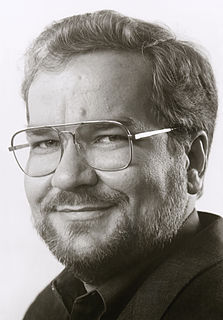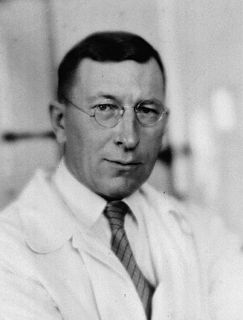A Quote by Walt Mossberg
Taken as a whole, consumer technologies have made startling advances, but they still are not as easy to use as they should be.
Related Quotes
Technological advances have always been driven more by a mind-set of 'I can' than 'I should' Technologists love to cram maximum functionality into their products. That's 'I can' thinking, which is driven by peer competition and market forces But this approach ignores the far more important question of how the consumer will actually use the device focus on what we should be doing, not just what we can.
A real challenge that I've had with my company, Bayou With Love, is getting people to understand that using post-consumer materials does not mean that you are getting a "less than" product than one made with virgin materials. I use a lot of post-consumer plastic in Bayou's clothing. I use it in our bags, which are made from recycled plastics from the ocean.
With the egoic consciousness having become so dysfunctional, and now having at our disposal all these enormous technologies and scientific advances, if nothing changes the ego will use those things - as it already has been doing - and will amplify the technology that we now have. The scientific advances, to a large extent, will be used in the service of the ego, and they will become more and more destructive.
The investor with a portfolio of sound stocks should expect their prices to fluctuate and should neither be concerned by sizable declines nor become excited by sizable advances. He should always remember that market quotations are there for his convenience, either to be taken advantage of or to be ignored.
It's a matter of resisting what something made you feel before. And resisting that as a consumer is not easy. I know it isn't for me, and not just when I consume pop culture. When I go into a book and it feels too familiar, I don't have the energy to do it. My whole reason for reading it is to be in a fictive space that is unfamiliar to me.
The world has changed far more in the past 100 years than in any other century in history. The reason is not political or economic but technological-technologies that flowed directly from advances in basic science. Clearly, no scientist better represents those advances than Albert Einstein: TIME's Person of the Century.
It was an extremely trying time for me. Best was still intimate with MacLeod and the others about the laboratory. I was out of the picture entirely. MacLeod had taken over the whole physiological investigation. Collip had taken over the biochemistry. Professor Graham and Dr. Campbell had taken over the whole clinical aspect of the investigation.
Man always made, and still makes, grotesque blunders in selecting and measuring forces, taken at random from the heap, but he never made a mistake in the value he set on the whole, which he symbolized as unity and worshipped as God. To this day, his attitude towards it has never changed, though science can no longer give to force a name.

































